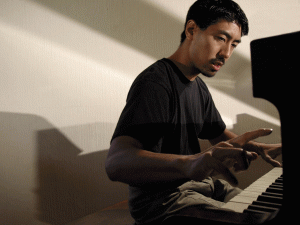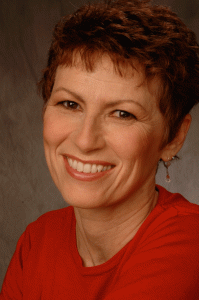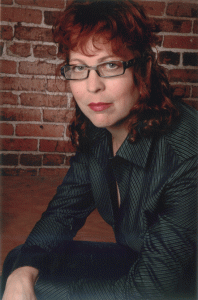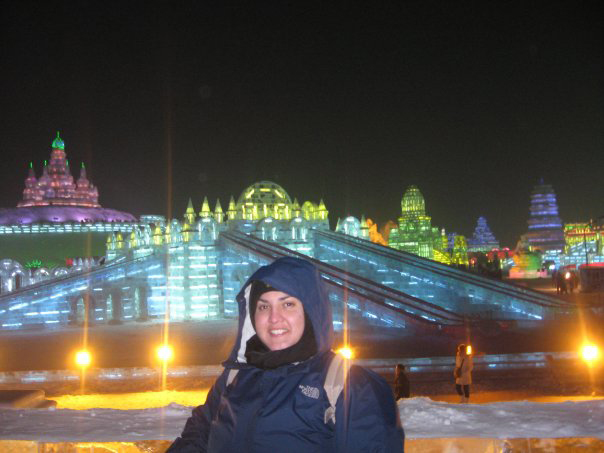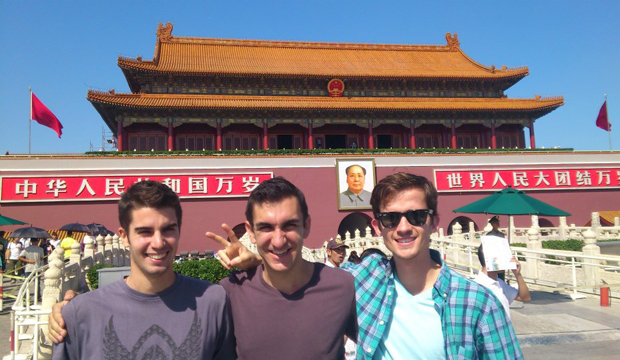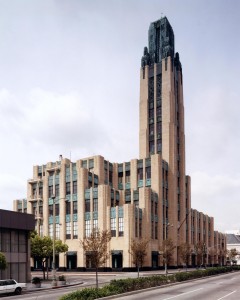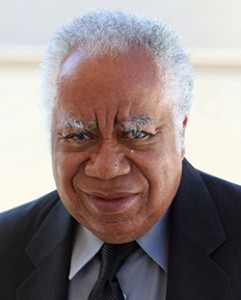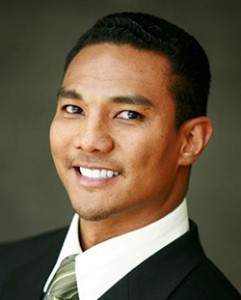
Summer at CSUN
Student Film Draws Attention to Issue of Sexual Assault on College Campuses

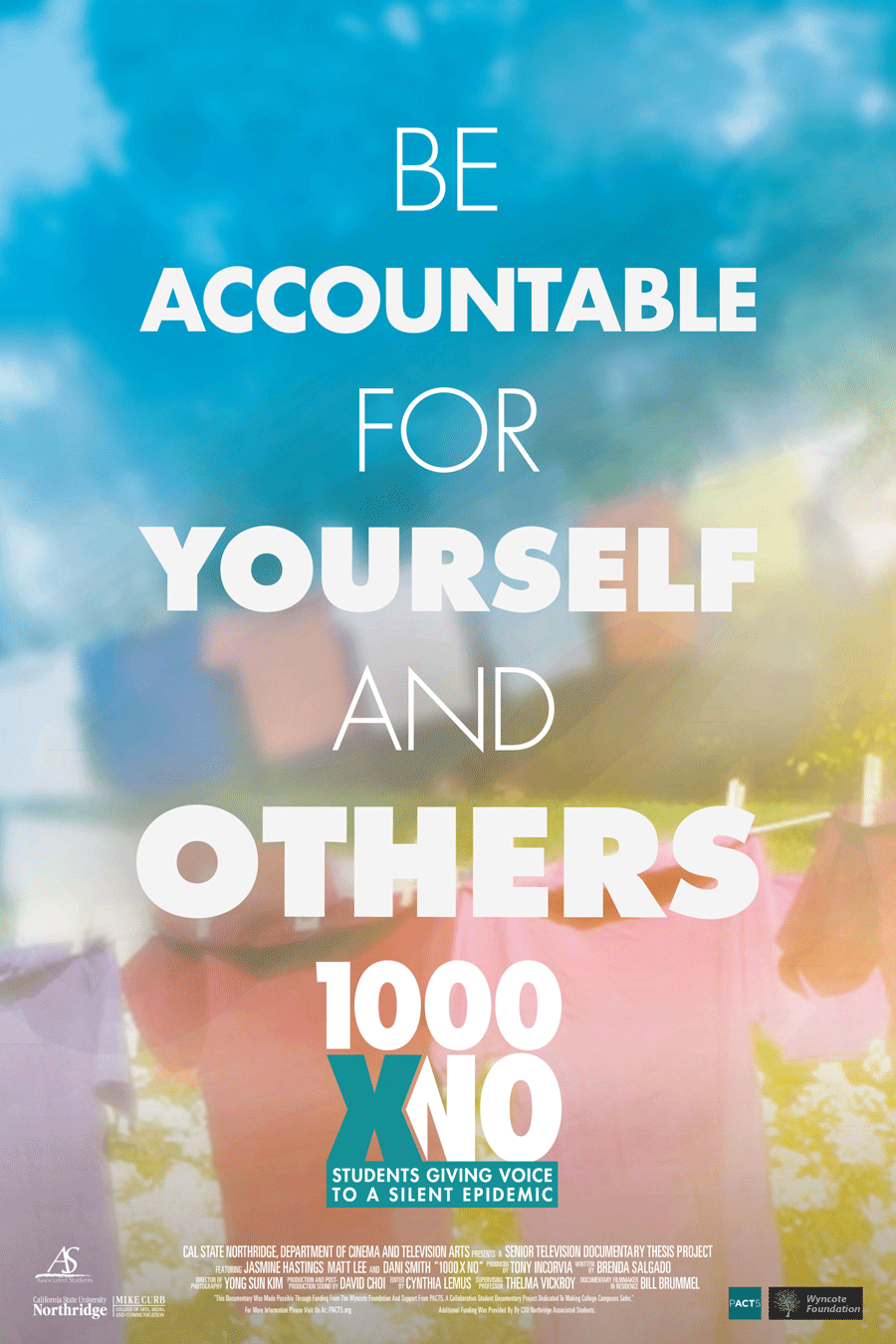 Joining a national effort to prevent sexual assaults and rape on college campuses, a team of California State University, Northridge television students have developed a short film to draw attention to the issue.
Joining a national effort to prevent sexual assaults and rape on college campuses, a team of California State University, Northridge television students have developed a short film to draw attention to the issue.
The 10-minute documentary, “1000 Times No: Giving Voice to a Silent Epidemic,” will be screened beginning this fall at more than 200 colleges across the country as part of a yearlong effort by the Clery Center for Security on Campus, a national nonprofit organization working for safer campuses, to educate students about what they can do about sexual assaults on their campuses.
Cal State Northridge was one of five colleges nationwide to receive a grant from the Wyncote Foundation to create student-produced documentaries about sexual assault on college campuses. The five colleges—CSUN, Rowen University in New Jersey, Framingham State University in Massachusetts, Northern Illinois University and Western State Colorado University—formed PACT5, a collaborative student documentary project dedicated to making college campuses safer.
“1000 Times No: Giving Voice to a Silent Epidemic” follows a group of college students taking action against the prevalence of sexual assault on college campuses by educating and raising awareness.
“We’re hoping to use the power of media to educate college students about a very serious issue,” said CSUN cinema and television arts professor Thelma Vickroy. “As a member of PACT5, we believe the documentary form, when produced by students, can create powerful stories that can change potentially tragic behavior patterns. Students are the ones who can make a difference in the minds of other students.”
Vickroy pointed to some statistics: 95 percent of campus sexual assaults are unreported, 90 percent of women know the person who sexually assaulted or raped them and at least 50 percent of sexual assaults on campus are alcohol-related.
“And its during those first few weeks of school, when students, particularly freshmen, are adjusting to being on their own and exploring their new-found independence, that they are the most vulnerable,” she said. “We had to find a effective way to educate people.”

The crew of ’1000 Times No,’ first row from left,Bill Brummell, Brenda Salgado, Cynthia Lumes, Yong Sun Kim; back row from left, Tony Incorvia, David Choi, Thelma Vickroy. Photo courtesy of Thelma Vickroy.
In fall 2012, Vickroy tapped a handful of students in her senior thesis capstone course to create the documentary. The handpicked students worked with colleagues in the departments of journalism, art and music to put the film together.
“We had so many ideas about how to tell this story, that at first it was hard to choose a topic,” said recent CSUN graduate Brenda Salgado, 23, of Santa Monica, who served as associate producer and writer of the film and was a member of the class. “We never wanted to just have somebody talking about their experience. We want something where people, especially freshmen, would pay attention, listen to what we had to say and maybe realize that there was something that they could do.”
Her classmate, Tony Incorvia, 25, of Yorba Linda, the film’s producer and also a recent CSUN graduate, agreed.
“The number of sexual assaults involving college students is shocking, and the highest number of incidents happen during the first six weeks of a student’s college career,” he said. “We wanted to do something that really fits the needs of a freshman orientation and leave something positive like this documentary behind to help better our alma mater.
“One of the things I am most proud of with ‘1000 Times No’ is that it raises awareness on sexual assault while also showing how you too can be involved with raising awareness,” Incorvia said. “I hope more people get informed and get involved with raising awareness.”
“1000 Times No: Giving Voice to a Silent Epidemic” can be viewed on the PACT5 website, www.pact5.org, which has all the documentaries produced by students from the five colleges. The site also makes available information and resources for faculty, students and parents concerning sexual assault on college campuses.
Hollywood Foreign Press Awards CSUN $50,000 for Senior Film Projects


Actress and CSUN alumna Eva Longoria at the Hollywood Foreign Press Association’s luncheon. Photo courtesy of the Hollywood Foreign Press Association.
While celebrities like Nicole Kidman, Jonah Hill, Blair Underwood and alumna Eva Longoria looked on, California State University, Northridge was awarded a $50,000 grant from the Hollywood Foreign Press Association to support students working on their senior film projects.
The presentation to CSUN’s Department of Cinema and Television Arts was made during the association’s star-studded annual luncheon last month. The grant comes on the heels of a recent decision by the association’s leadership to create a $25,000 endowed scholarship at the university to support students in the department’s film option.
“We have a wonderful, long-term relationship with the Hollywood Foreign Press Association,” said cinema and television arts professor Nate Thomas, who heads CSUN’s film option. “They understand who are students are—that they are working class and reflect the rich diversity that makes up not just Southern California, but the United States as well. Every financial gift we get makes a difference to our students as they move closer to realizing their dreams—telling stories, making movies, that reflect who they are and the worlds they come from. The association’s leadership has always appreciated that.”
The Hollywood Foreign Press Association, which is made up of international journalists who report on the entertainment industry and hosts the Golden Globes each year, donated at record $1.6 million in grants to a variety of entertainment-related and charitable organizations at its Annual Installation of Officers and Grants Luncheon. The donations were for a wide range of projects, including the preservation of films, higher education, training and mentoring and the promotion of cultural exchange through film.
“We try every year to give as much as we can to these highly deserving organizations,” said the association’s president, Theo Kingma. “It is gratifying to know that our efforts are appreciated and we are helping to further the cause of education and film preservation.”
Longoria, who earned her master’s in Chicana/Chicano studies from CSUN earlier this summer, acted as host for the event. In addition to Kidman, Hill and Underwood, other celebrities at the luncheon included Colin Farrell, David O. Russell, Amber Heard, Liam Hemsworth, Vin Diesel, Tab Hunter, Marsha Hunt, Julie Delpy, Dermot Mulroney, Piper Perabo, Olivia Wilde and Jason Bateman. Actress Diane Kruger and Academy Award-nominee Demian Bichir accepted the $50,000 grant on CSUN’s behalf.
Cal State Northridge’s relationship with the Hollywood Foreign Press Association goes back nearly 20 years. In addition to its continued support of the film students’ senior film projects, CSUN students also edit in the Hollywood Foreign Press Association Senior Film Edit Suite and work on sound design in a state-of-the-art sound mix facility made possible by a grant from the association.
CSUN Offers ‘Speed Mentoring’ for Students Interested in Science, Engineering
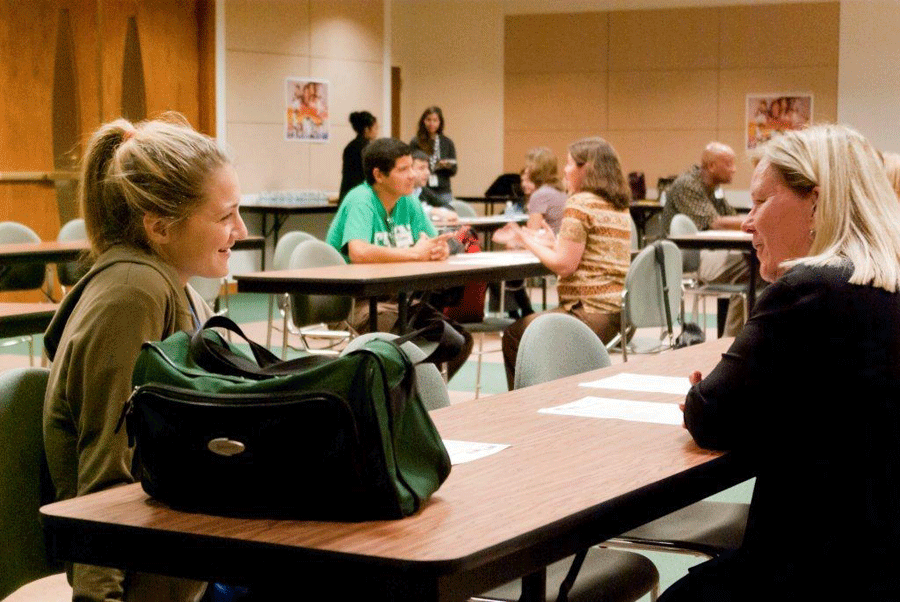
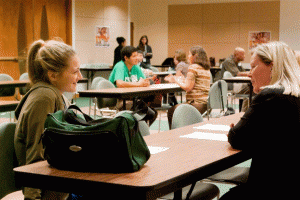
Students taking part in last year’s Drop In, Take Ten event at the Oviatt Library. Photo courtesy of the Oviatt Library.
Students from colleges throughout the San Fernando Valley are invited to join their colleagues at California State University, Northridge for speed mentoring on Tuesday, Oct. 22, to learn about opportunities in the fields of engineering and science.
The second annual “Drop In, Take Ten” event, sponsored by CSUN’s Bonita J. Campbell Endowment for Women in Science an Engineering (WISE), is scheduled to take place from 4 to 6 p.m. in the Ferman Presentation Room of the Delmar T. Oviatt Library, located in the heart of the university’s campus at 18111 Nordhoff St. in Northridge.
Engineers and scientists from all sectors of the technological workforce will be on hand to answer questions. Students will be able to site one-on-one for 10- to 15-minute intervals with up to five different “mentors” from a diverse list of organizations and companies that includes FIRST Robotics, Medtronic, Northrop Grumman, The Aerospace Corporation and the Naval Facilities Engineering and Expeditionary Warfare Center. During the short, highly focused sessions, students will be given the opportunity to ask questions about career paths and the professional environments their mentors work in.
The event will begin with a short welcome from Peggy Nelson, vice president of engineering and global product development for Northrop Grumman Aerospace Systems.
The WISE endowment was established at CSUN’s Oviatt Library in 2009 by manufacturing systems engineering and management professor emeritus Bonita J. Campbell. One of the endowment’s primary directives is to encourage and help women build careers in science and engineering.
For more information about the event, visit the WISE website http://library.csun.edu/WISE or call (818) 677-2638. Persons with disabilities planning to attend the event and needing assistance and deaf and hard-of-hearing persons needing interpreters, please call the above number in advance for arrangements.
For additional information about library events and hours, visit its website at http://library.csun.edu or call (818) 677-2285.
Cal State Northridge’s Oviatt Library has more than 1.4 million volumes. It also subscribes to nearly 53,000 online journals, more than 2,300 print journals, more than 200 online databases and nearly 27,000 eBooks. It has an extensive audio and video collection, numbering nearly 18,000 items. The library’s online resources are heavily used, with almost 13 million visits to its Web pages and databases annually; and a yearly gate count of more than 1.6 million patrons. It also has an extensive collection of rare books, manuscripts, documents, photographs, artifacts and other archival materials. The Oviatt Library serves as the main research facility for the San Fernando Valley.
Pre-Concert Lectures by CSUN Faculty to Begin at Valley Performing Arts Center
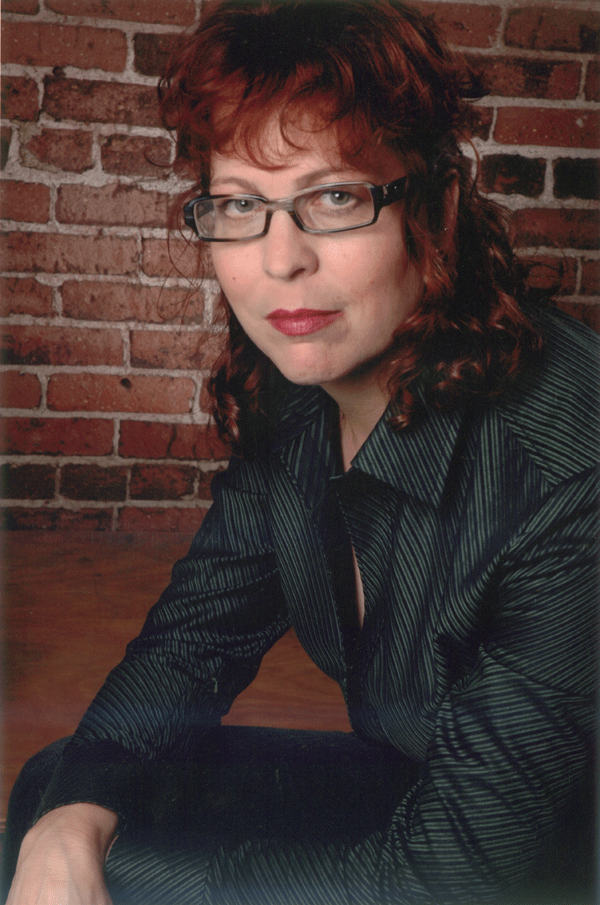
The Valley Performing Arts Center is beginning a series of pre-concert lectures hosted by California State University, Northridge faculty who hope to give audience members a greater appreciation of the performances they are about to see. The first lecture is scheduled for Friday, Oct. 18.
Three lectures, titled “Classrooms in the Courtyard,” are scheduled prior to performances during VPAC’s fall season. Friday’s lecture will feature a talk on jazz. November will introduce audiences to modern dance. December will focus on Broadway. The Valley Performing Arts Center is located the southern end of the CSUN campus at 18111 Nordhoff St. in Northridge. The lectures are free and open to the public.
“As an integral part of a great university, the VPAC’s mission is education, as well as entertainment,” said Steve Thachuk, interim director of the center. “It just makes sense to have some of our professors transmit their in-depth knowledge of the arts to our concert goers at our ‘Classrooms in the Courtyard.’ It’s an opportunity for our audience members to enhance their understanding and enjoyment of the performance they will soon experience.”
CSUN music professor Gary Fukushima will present “New Orleans Jazz from the Roots to New Cross-Genre Sounds” at 6:30 p.m. on Friday, Oct. 18, in the Courtyard Theatre of the Valley Performing Arts Center, prior to the jazz concert by Jon Batiste and Stay Human at 8 p.m. Fukushima will take concert attendees on a trip to New Orleans, stopping in all the spots where this uniquely American art form developed.
Fukushima is a pianist, composer and educator as well as an active Los Angeles jazz musician. He has performed throughout the United States for more than a decade as member of the jazz-folk group The Sabella Consort. He also has been a sideman for many other groups and vocalists, including the swing band Big Bad Voodoo Daddy, alto saxophonist Mark Taylor and vocalists Rene Olstead, Leona Coakley, Ben Black, Phyllis Chang and Brettina Robinson.
CSUN kinesiology professor Paula Thomson and several professional dancers will explore the elements, themes and movement vocabulary of modern dance at 6:30 p.m. on Saturday, Nov. 23, prior to the Lar Lubotvitch Dance Company performance at 8 p.m.
Thomson has been a choreographer, teacher and movement coach in theaters and schools throughout Canada and the United States for more than 25 years. She studied dance and choreography in New York City, Toronto and Los Angeles. The companies she has worked with range from the Stratford Shakespearean Festival to the Canadian Opera Company Ensemble.
CSUN theatre professor Janet Miller will enthrall audience members with tales of memorable musical theater moments at 6:30 p.m. on Saturday, Dec. 7, prior to Brian Stokes Mitchell’s “Simply Broadway” performance at 8 p.m.
Miller is a producer, director and choreographer. Her choreography was showcased off Broadway in “The Marvelous Wonderettes,” for which she received a Lucille Lortel Award nomination for outstanding choreographer. Miller has worked on both coasts and in Europe, directing such shows as “A Man of No Important,” “Side by Side by Sondheim” and “The Odd Couple.” She currently is the producing artistic director for Good People Theater Company.
The 1,700-seat Valley Performing Arts Center has established California State University, Northridge as a hub for culture and performing arts. For more information, contact the Valley Performing Arts Center at http://www.valleyperformingartscenter.org/.
Connections Made with Families at DEAF Project Retreat
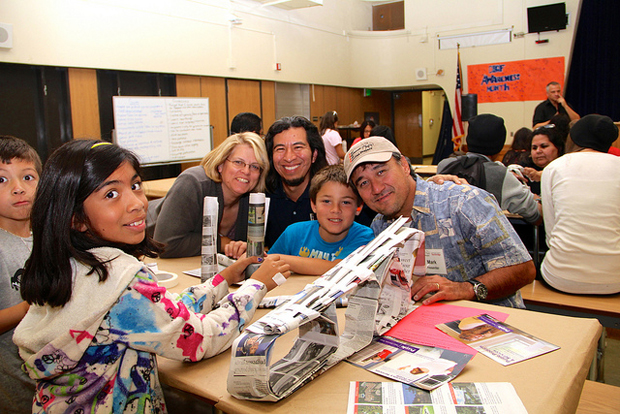

The leaders of “For Dads Only!” Tomas Garcia (left) and Mark Splittstoesser (right) connect with members of their own families during the family team-building activity. Pictured here are (back, L to R) Sandy Splittstoesser, Tomas Garcia, Connor Splittsotesser and Mark Splittstoesser, with (front, L to R) Ixtli and Xochitl Garcia. Photo by Marsha Katz-Rothpan.
More than 90 percent of the nearly 12,000 deaf and hard-of-hearing babies born annually in the United States have hearing parents. Often, that baby is the first deaf person the parents have ever met, and questions abound as they enter an unfamiliar world.
California State University, Northridge’s Deaf Education and Families Project (DEAF Project) answered some of those questions at a daylong retreat on Oct. 12 at the Marlton School in Los Angeles. “Connected: Celebrating Families” presented workshops and family team-building activities designed for parents of all experience levels.
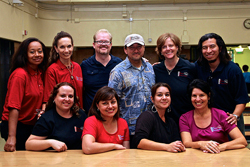
“Connected: Celebrating Families” was the result of a collaborative effort between CSUN professionals and parents. Photo by Marsha Katz-Rothpan.
More than 220 individuals and families of deaf and hard-of-hearing children traveled from across Southern California to learn, play and network. To make the information available to as many families as possible, DEAF Project heavily subsidized the event through sponsorships and grant funding.
“We are thrilled with the turnout at our first, full-day event of this kind,” said Rachel Friedman Narr, project coordinator for DEAF Project and a professor of special education and deaf education at CSUN. ”It’s inspiring to see parents from not only throughout Los Angeles, but Ventura, Riverside, San Diego, Bakersfield and Indio, all coming together in support of their deaf and hard-of-hearing children. We hope to make the Connected retreat an annual event, and we look forward to seeing these families at future DEAF Project events and activities.”
One of the goals of the retreat was to encourage families to explore language inclusion and multilingualism as building blocks for solid inter-family relationships, as well as a key component of their child’s overall success.
“We want parents to understand that they don’t have to choose one method of communication,” Friedman Narr said. Workshops were presented in spoken English, spoken Spanish and American Sign Language.
Highlights of the retreat were the parent-specific workshops and networking opportunities.
The “Moms Connect” workshop provided a networking space to share ideas and experiences related to raising deaf and hard-of-hearing children. The “For Dads Only!” group, led by two fathers who are deaf, addressed the importance of fathers’ roles in the lives of their children, and participants wore ear plugs at times during the workshop to simulate the deaf experience.
“I saw families from diverse linguistic and cultural backgrounds, who are all united because they have children who are deaf or hard-of-hearing,” said Nancy Grosz Sager, the deaf and hard-of-hearing consultant for the California Department of Education who attended the event.
More than 80 kids were entertained with arts and crafts, relay races, painting, play equipment and pumpkin carving in a supervised children’s program.
CSUN’s Deaf Education And Families Project supports and empowers families with deaf and hard-of-hearing children. To date, the organization has positively impacted more than 1,000 families throughout Southern California.
For more information about DEAF Project, email DEAFProject@csun.edu.
CSUN Students and Alumni Receive Year-Long China Study Abroad Awards
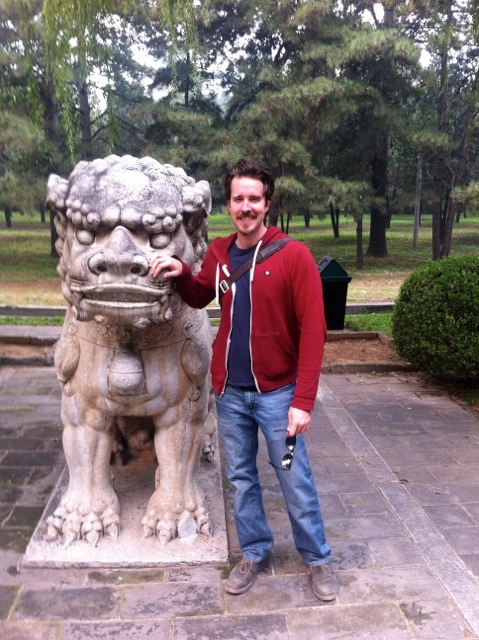
For students wanting to experience life in one of the world’s most populated and fascinating countries, at no cost to them, California State University, Northridge has an option. The China Scholarship Council (CSC) provides students with funding to live and study for a full year in China. Funded by the Chinese government, the awards cover tuition as well as living expenses, giving CSUN graduate and undergraduate students from any discipline the opportunity to experience life in China.

Brandon Violette posing next to a lion statue along the Sacred Way, which leads to Beijing’s Ming Tombs.
This year, seven CSUN students and alumni received this prestigious award. Most described their experience in China as life-changing, with opportunities for developing skills and opening new doors to careers.
Brandon Violette ’13 (Cinema-Screenwriting), currently studying at the Beijing Film Academy, says the skills he’s gained in China can only be learned through experience.
“I’ve literally packed my life into two suitcases and made that blind leap to a foreign country to start over, make a few friends and see walks of life I’d only read about,” said Violette. “Once you go through that, with all the excitement and anxieties that go with it, it humbles you. It reminds you that you’re not at the center of the world like you once thought you were.”
Violette encourages every student to apply to the China Scholarship Council program regardless of their field of study. “It’s a tremendous opportunity that I still can’t believe is out there for people to grab,” he said.
Danielle Cabello ’05 (English) said one thing will carry on for the rest of her life from her experience is the importance to step out of your comfort zone. Cabello loved her experience in China so much that she decided to stay and teach English.
“After my scholarship was finished, I realized I didn’t want to leave China right away because I felt that one year simply wasn’t enough to really get to see and learn about such a vast country,” she said. “Now, four years later, I’m still in China studying for a master’s degree at Tsinghua University and plan on staying here for a few years after graduation to teach.”
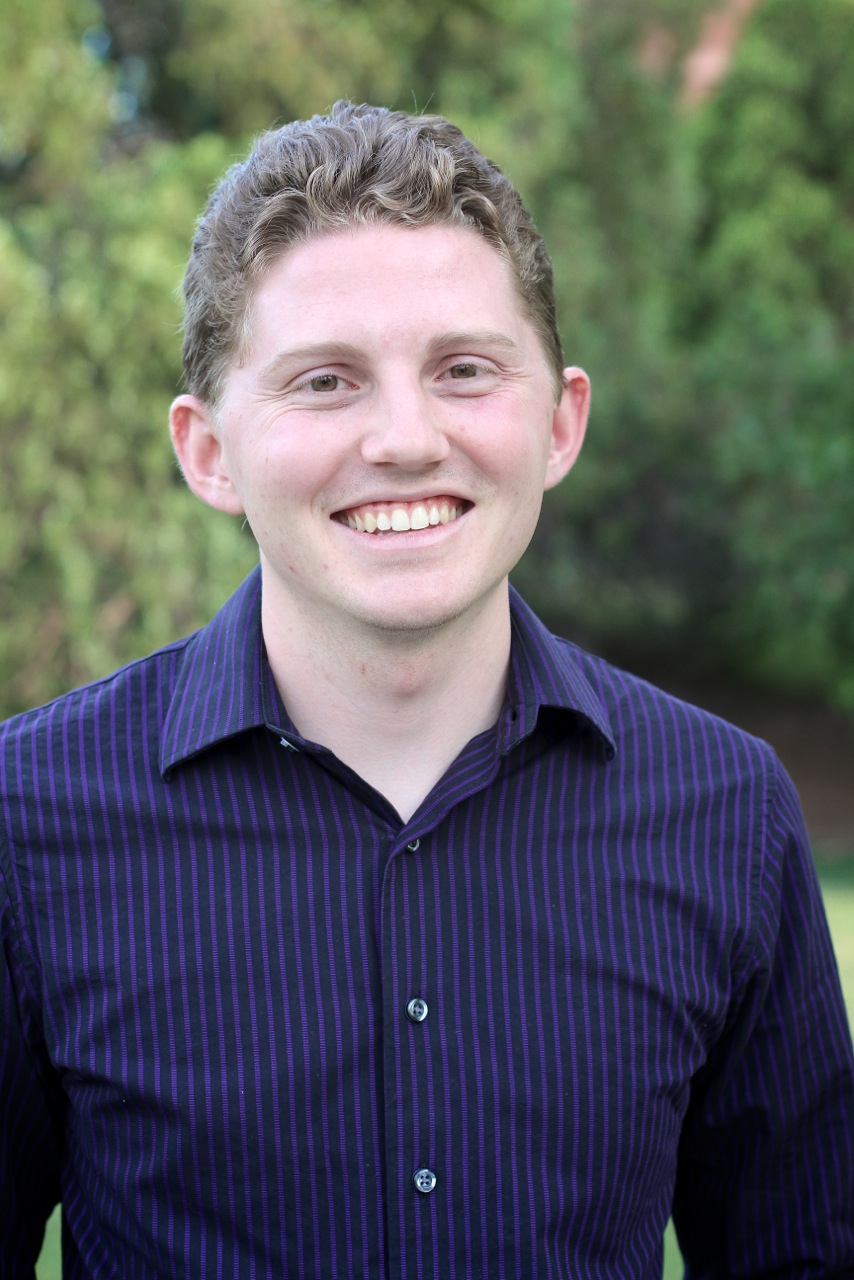
Recipient Spencer Goad believes that the opportunity of living in China was the key to his continuing career.
After leaving CSUN, Spencer Goad ’09 (Music Performance-Percussion) earned his master’s at Arizona State University and began working as a college professor teaching music history in Phoenix. Goad applied to CSC and was accepted into Shanghai Conservatory of Music for one year as a visiting senior scholar.
Goad believes that the opportunity of living in China was the key to his continuing career as a college educator. “There is a whole other world outside of Southern California, the United States and the Western world little bubble we live in. [You have to] keep an open mind and be eager to learn or you will miss out on many wonderful things,” he said.
Andrew Javidi ’12 (Political Science-Government and Politics) believes studying in China has given him insight and knowledge for his future career and helped him focus on his interests in diplomacy and international relations. Studying Contemporary Chinese at Renmin University of China in Beijing has made him realize how central China is to international politics, the world economy and the coming century.
“Not only my studies, but the amount of news coverage, scholarly articles and media attention paid toward China just in the little over a year that I’ve been here has confirmed that this was the best decision I’ve ever made,” said Javidi.
Javidi encourages other students to pursue studies in China, especially through the China Scholarship Program. “No matter what field students want to explore, or what career path they want to follow, China will be a player for years to come, and learning about the country,” he said. “The culture and the language will prove beneficial to many people. The China Scholarship Program offers full tuition, board and a monthly living stipend; it really doesn’t get better than this.”
The other CSUN recipients this year were current students Eliza Corpuz (Music), Danny R. Lopez (Philosophy) and Robert Francis Megill (Philosophy).
CSUN, Southwestern Law School to Offer 3+3 Program for Northridge Undergrads
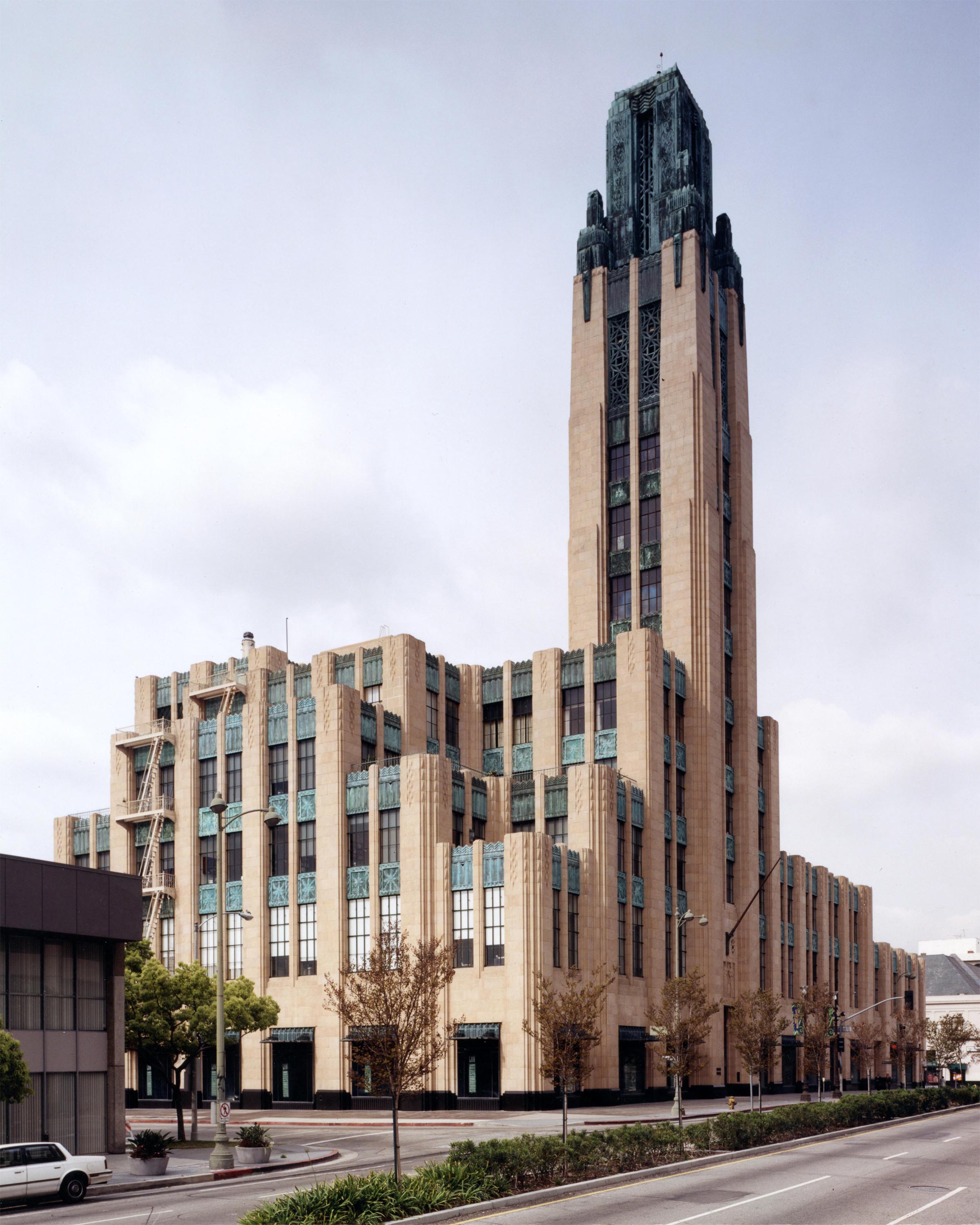
Southwestern Law School and California State University, Northridge have established an accelerated multiple-degree program through which students can earn both their Bachelor of Arts and Juris Doctor degrees in six years, rather than the usual seven.
Students participating in the 3+3 B.A./J.D. Program will have their first year of law school count as the fourth year of their undergraduate education. Students admitted to Southwestern through the program will receive $10,000 Wildman/Schumacher entering-student scholarships, which may be renewable in subsequent years depending on academic performance. CSUN will begin recruiting students for the program this year. The first class is expected to enroll in the fall of 2014, and initial enrollment is expected to be up to 35 students drawn from any department on the Northridge campus.
“I am pleased CSUN is partnering with Southwestern to give students who are committed to pursuing a career in law an opportunity to get a head start on achieving their goal,” said CSUN President Dianne F. Harrison. “It is another example of CSUN’s commitment to find innovative ways to help students advance, and I am grateful to the staff at both institutions who made this program a reality.”
Southwestern Dean Austen Parrish said the program provides his institution “with another important avenue for encouraging promising undergraduate students from a wide range of backgrounds to pursue a legal education at Southwestern.”
“This is a natural partnership for our two schools, both having long-held extensive connections to Southern California,” Parrish said. “It is notable that there are more CSUN graduates serving in the Los Angeles-area judiciary than from any other undergraduate institution — a heritage that is similar to Southwestern’s. CSUN also sponsors an extensive judicial internship program for students with the L.A. County Superior Courts, as does Southwestern.”
Stella Theodoulou, dean of CSUN’s College of Social and Behavioral Sciences, played a key role in developing the program.
“This is truly a wonderful path for our students who know early on that they wish to pursue graduate education in law,” Theodoulou said. “A CSUN-Southwestern program is a significant extension of both institutions’ commitment to providing our students with a relevant educational experience so that they are competitive members of the region’s workforce and future leaders of California.”
Southwestern trustee Lauren Leichtman, chief executive officer of Levine Leichtman Capital Partners, is a prominent graduate of Southwestern and CSUN, and was honored with CSUN’s Distinguished Alumni Award in 2010.
“I am so pleased to see this program launched,” she said. “My education at both institutions helped prepare me for rewarding leadership positions in law, business and philanthropy, so I know this partnership represents a unique opportunity for outstanding CSUN students who want to earn their undergraduate and law degrees on an accelerated timeline.”
For more information and the program requirements, click here. Those with questions about the program can contact Robert Mena, Assistant Dean for Student Affairs at Southwestern, at rmena@swlaw.edu or (213) 738-6716.
With a long-standing emphasis on diversity, public service and innovative programs, and a mid-city campus featuring a world-renowned Art Deco landmark building, Southwestern Law School reflects the vibrancy of Los Angeles and provides an ideal setting for law study. Founded in 1911 as an independent, nonprofit, nonsectarian institution, Southwestern is fully approved by the American Bar Association and is a member of the Association of American Law Schools. It is the only law school to offer four Juris Doctor courses of study that differ in scheduling and instructional approach, including traditional full- and part-time programs as well as a unique two-year accelerated curriculum. Southwestern also offers a concurrent J.D./MBA program with The Drucker Graduate School of Management; a J.D./M.A. program in negotiation with California State University, Dominguez Hills; a public policy certificate program with the Pardee RAND Graduate School; a bioscience industry certificate program with the Keck Graduate Institute; and LL.M. programs in entertainment and media law and general studies. With a reputation for graduating lawyers who are well-rounded, entrepreneurial and prepared for practice, Southwestern’s 12,000 alumni include prominent public officials – from members of Congress to mayors, and more than 200 judges – as well as founders of major law firms and general counsels of multinational corporations. The law school has strong ties to the legal, business, and civic sectors, and its Biederman Entertainment and Media Law Institute, closely linked to the entertainment industry in Hollywood and internationally, offers the most comprehensive entertainment, media and intellectual property curriculum in the United States.
As part of the 23-campus California State University system, CSUN is one of the largest universities in the nation, enrolling more than 38,000 full- and part-time students. Cal State Northridge has nine colleges and more than 2,000 faculty members who teach courses leading to bachelor’s degrees in 69 disciplines, master’s degrees in 58 fields and doctorates in educational leadership and physical therapy, as well as 28 teaching credential programs. Founded in 1958, CSUN is a vibrant and global community located on 356-acres in the heart of Los Angeles’ San Fernando Valley. Its new Valley Performing Arts Center and Student Recreation Center attest to the campus’ commitment to providing students and the community with world-class, state-of-the-art cultural and academic facilities.
Founder of Black Psychology Among Speakers, DuBois-Hamer Institute Events

California State University, Northridge’s Department of Pan African Studies DuBois-Hamer Institute for Academic Achievement will examine issues such as the social and emotional development of African-American children, the pathways to inclusive teaching and various methods of engaging African-American male students as part of a series of lectures this fall.
“The institute will assist the department in promoting scholarly inquiry among students, staff and faculty through research and collaboration,” said Pan African studies professor Cedric Hackett ’95 (Sociology/Counseling), M.A. ’00 (Educational Psychology and Counseling), director of the DuBois-Hamer Institute. “We are providing important lectures around issues concerning the black community.”
This month, Joseph L. White, emeritus professor of psychology and psychiatry at the University of California, Irvine and one of the individuals who laid the groundwork for the growth of multicultural studies nationwide, will discuss “Pathways to Inclusive Teaching and Learning Excellence in the 21st Century” on Thursday, Oct. 31, from 12:30 to 1:30 p.m. in the University Student Union’s Northridge Center.
While White’s main field of study was clinical psychology, during his nearly three-decades-long career, he focused much of his attention on mentoring African-American students and developing curriculum that catered to the needs of students of color. In 1968, White helped found the Association of Black Psychologists, which contributed to the increase in the number of blacks pursuing careers in psychology and challenged the traditional psychological theories used to study black Americans. He is also credited with helping to establish the Educational Opportunities Program at California State University, Long Beach, which became the foundation for a similar program implemented across the California State University system.
Dyrell Foster, dean of students at Rio Hondo College, will discuss “Understanding the Student Engagement Experiences of African-American Males” on Tuesday, Nov. 26, from 12:30 to 2 p.m. in the University Student Union’s Grand Salon. The event will include poster presentations on black men from students enrolled in the Pan African studies class “Black Men in Contemporary Times.”
Foster has served as dean of student affairs at Rio Hondo College for two years. He has previously served as the associate dean of counseling and the director of student life at Mt. San Antonio College. He is president-elect of the African American Male Education and Network Development Organization.
The DuBois-Hamer Institute for Academic Achievement was founded in 1997. It is one of several research institutes in the Department of Pan African Studies. The institute’s mission is to promote student success through community and campus partnerships.
For more information about the speakers series, contact Cedric Hackett at (818) 677-3311 or email Cedric Hackett or visit the institute’s website.
Education Expert Diane Ravitch and Actor Matt Damon Kick Off CSUN Lecture Series
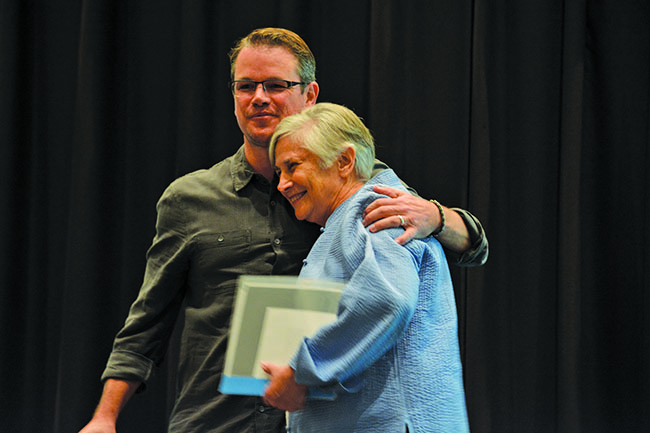

Matt Damon and Diane Ravitch, Ph.D., embraced at CSUN’s Education on Edge speaker series. Ravitch is an avid advocate for education. Photo by John Saringo-Rodriguez / Daily Sundial.
Actor and Academy Award-winning screenwriter Matt Damon introduced Diane Ravitch, the former U.S. Assistant Secretary of Education and a current research professor and historian at New York University, at a lecture hosted by California State University, Northridge’s Center for Teaching and Learning that explored the pressures facing public education in the United States.
Ravitch was the first featured speaker of the center’s Education on the Edge lecture series. A well-respected historian, critic, best-selling author and education analyst with more than 40 years of research and experience, she offered critiques of many popular ideas and trends for restructuring schools, including privatization, standardized testing, punitive accountability and charter schools.
In line with the goals of the lecture series to raise controversial issues to the surface as discussion points and examine uncomfortable truths, Ravitch questioned the popular reasons given for “failing” students. While teachers are often targets for criticism, she suggested that poverty is at the root of the problem.
“The hardest problem that we face is the biggest problem, and that is that the cause of low test scores, the cause of low academic performance, the cause of almost everything negative that happens is poverty,” Ravitch said. “We must reduce poverty in this country.”
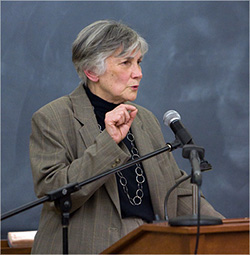
Diane Ravitch spoke at CSUN of her educational experiences and promoted her book, “The Reign of Error.” Photo by John Saringo-Rodriguez / Daily Sundial.
She said that amidst the negative talk and focus on low test scores – the crux of the “failure” rates – U.S. graduation rates have not reduced. She pointed out that they are “the highest they’ve ever been in history … We are making progress, and we’ve got to recognize it.”
Ravitch said she was optimistic about the future of America’s public education system, explaining that the duty of education is to create well-rounded, critical, kind individuals who will shortly become the governing minds of society.
“The purpose of education is not to race to higher test scores but to prepare children for the duties and responsibilities of citizenship,” she said. “What matters most is that we have schools where students learn to think about the consequences of their actions; where they learn to treat others with respect; where they learn how to live and work in a world of rapid change; where they gain the knowledge and skills that will bring us one day to a society that is more just, more civil; and where there is, in fact, liberty and justice for all.”
Ravitch’s lecture took place the evening of Oct. 2 in the Northridge Center of the University Student Union.
“Ravitch is a big thinker and a researcher who helps us question the norm,” said Wendy Murawski, the executive director of and Eisner Endowed Chair at the Center for Teaching and Learning. “The goal (of the series) is to bring to campus highly visible individuals who are considered cutting edge in various topics related to education. They are big thinkers who may cause us to question how we currently do things in education.”
The Education on the Edge series provides an opportunity for the greater education community to learn about contemporary research in education policy.
“As a university, it is our duty to deal with and bring to the surface issues surrounding education,” said Michael E. Spagna, dean of the Michael D. Eisner College of Education, which includes the Center for Teaching and Learning. “The speakers we are bringing in reinforce this duty and are committed to truth and informing the public about problems surrounding public education and its discourses. They provide a balanced review of the facts.”
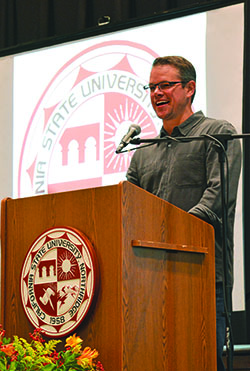
Actor Matt Damon introduced Diane Ravitch to a crowd of more than 700. Photo by John Saringo-Rodriguez / Daily Sundial.
Using his celebrity to highlight a critical topic, Damon noted his appreciation for the work Ravitch has done in the field of public education.
“She’s somebody that I have admired for a very long time,” Damon said. “She’s an amazing person. She’s America’s foremost historian and theorist of education policy. She’s a champion of public education. She’s a courageous leader, and she’s a truth-teller.”
Damon went on to explain her life in education policy and how she has championed the changes she called for in her talk. “She is leading the national movement to preserve public education,” Damon said.
Spagna pointed out that those in the spotlight, including those in the entertainment industry, can use their position to draw attention to the fight for strengthening the nation’s public education system.
“We need people in the public eye to acknowledge and share their cultural appreciation for public school teachers,” he said. “With celebrities like Matt Damon saying educators are important, the appreciation for teachers can be shifted because of the power those individuals wield.”
Damon joined his mother, Nancy Carlsson-Paige, a child development expert and professor emerita at Lesley University; Spagna; and CSUN President Dianne F. Harrison in the audience of more than 700 people to hear Ravitch speak.
The series will continue through the spring semester and among its future speakers are Linda Darling Hammond from Stanford University and Lou Cozolino of Pepperdine University.
For information on how to register online for future events, visit the CSUN Center for Teaching and Learning website.
CSUN Study Aims to Increase Student-Athlete Academic Success


CSUN’s Department of Intercollegiate Athletics has joined with the University of Pennsylvania to study the experiences of women athletes and students of color.
California State University, Northridge and the University of Pennsylvania’s Center for the Study of Race and Equity in Education have joined forces to participate in a project to determine student success for women and students of color who participate in athletics at CSUN.
Historically, African-American and Latino student-athletes have been underrepresented in higher education, and women have been inadequately represented in intercollegiate athletics. The project, which will be conducted at CSUN, will focus on the student-athlete experience in three main areas: campus engagement, athletics and academic success.
The project is aligned with the CSUN athletics department’s “Comprehensive Excellence” agenda, according to CSUN director of intercollegiate athletics Brandon E. Martin, Ed.D.
“Our most important pursuit is the academic success of CSUN’s student-athletes,” said Martin. “Gaining in-depth insights into the experiences of student-athletes who represent diverse backgrounds is consistent with the athletics department’s and the university’s commitment to student success. It is indeed an honor and a privilege to partner with my colleagues at Penn and Dr. Frank Harris III on this significant project.”
Shaun R. Harper, Ph.D., founder and director of the Center for the Study of Race and Equity in Education at the Penn Graduate School of Education, will oversee a research team that will participate in each step of the study. Harper is a national authority on race and equity in education and recently completed a comprehensive 50-state policy report on access and equity for black undergraduate men at public colleges and universities for the Congressional Black Caucus.
“CSUN athletics is pursuing important insights into the experiences of student-athletes who enhance the university’s diversity,” said Harper.
Frank Harris III, Ed.D., M.A. ’99 (Speech Communications), an associate professor at San Diego State University and co-director of the Minority Male Community College Collaborative, will join Harper and his fellow researchers from the Center for the Study of Race and Equity in Education to gather data on this project.
“I commend Dr. Martin and his colleagues for their commitment to ensuring that women, Latino and African-American student-athletes at CSUN have rewarding and well-rounded undergraduate experiences,” Harris said. “The insights that emerge from this project will not only help to strengthen the student-athlete experience at CSUN, but may also result in a set of promising practices that can be incorporated at other athletics programs across the country.”
The project will gauge the experiences of female students of all ethnicities and male students of color who participate in CSUN athletics through focus groups with student-athletes who volunteer to be part of the project. Based on the findings, the research team will offer ways for CSUN administrators to enhance student success and the quality of their undergraduate experience. Finally, the group will analyze the extent to which women have opportunities to thrive as student-athletes at CSUN.
“The implications for student success from this report cannot be overstated,” said Elizabeth Adams, Ph.D., associate vice president of undergraduate studies at CSUN. “Not only will it allow CSUN to help our most academically vulnerable student-athletes to succeed, it will also aid us in overall student success. Ultimately, this study can have a profound impact on the success of the CSUN athletics program and on the university as a whole.”
Cal State Northridge Professor Appointed to CSU Board of Trustees
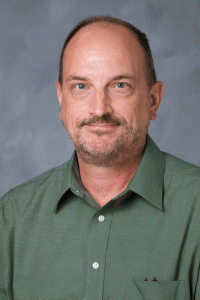
California State University, Northridge computer science professor Steven Stepanek has been appointed to the California State University Board of Trustees by Gov. Jerry Brown.
Stepanek, currently chair of CSUN’s Department of Computer Science and faculty president, was appointed Oct. 25 by the governor to represent faculty interests on the 25-member board responsible for the oversight of the 23-campus CSU system. Stepanek’s appointment was effective immediately.
Stepanek is the first CSUN faculty member to be appointed to the board. He will be joining CSUN senior Talar Alexanian, vice president of Northridge’s Associated Students and the first Cal State Northridge student appointed to the CSU Board of Trustees. This is only the second time in CSU history that the faculty and student trustees have come from the same campus. The first time was in 1989, when the two trustees came from Fresno State.
“I think it’s a wonderful reflection on CSUN and on our faculty and students,” Stepanek said.
CSUN President Dianne F. Harrison lauded Stepanek’s appointment in an announcement to the university campus.
“The CSU Faculty Trustee fills a crucial role on the CSU Board because that person represents a vital constituency of the CSU — the faculty who are directly responsible for the scholarship, research and teaching that advances the central mission of the university,” Harrison wrote. “Yet the formal responsibility of this appointment also requires an ability to consider what is best for all constituencies in the CSU. Professor Stepanek’s record demonstrates that he can achieve this vital balance.”
Stepanek, 62, of Canoga Park, has spent more than 40 years as a member of the California State University community, specifically CSUN. He earned his bachelor’s degree in mathematics from Northridge in 1974 and his master’s degree in computer science in 1980.
Stepanek has been working in Cal State Northridge’s Department of Computer Science since 1976, first as a lecturer and then as a full-time professor, having earned tenure in 1984. He has spent the past 14 years as chair of the department. He has been a member of the CSUN Faculty Senate since 1994 and was elected to its executive committee for most of those years. He has also spent the past eight years as a member of the CSU statewide Academic Senate and has served on several statewide committees.
Stepanek said he was surprised when Gov. Brown personally called him last week to interview him prior to the appointment.
“We discussed issues involving higher education in the state of California,” he said. “We also discussed to some extent what the proper role technology should play in higher education.”
As an active faculty member on the CSUN campus, Stepanek has played a key role in incorporating the use of technology, including online classes, into the university’s curriculum. He said that experience will come in handy as the CSU board tackles the governor’s desire to increase the use of technology within the system.
“Technology in higher education is clearly one of the governor’s priorities and will be something that will come before the board,” he said.
Stepanek’s appointment to the CSU Board of Trustees is for two years and is a full-time position. In addition to attending CSU trustee meetings, Stepanek will also be traveling to CSU campuses across the state to meet with faculty about issues important to them.
Given the demands of his new post, Stepanek said he will be stepping down as chair of Department of Computer Science and as CSUN faculty president at the end of the current semester.
“But CSUN will always be my home base,” he said. “When I am not traveling, I will be here. I want to stay connected with the campus. It’ll help me keep grounded and I the knowledge I gain at CSUN and from my visits to other CSU campuses will assist me in carrying out my responsibilities on the board.”
CSUN’s Brown Center Celebrates 10 Years of Impacting Lives
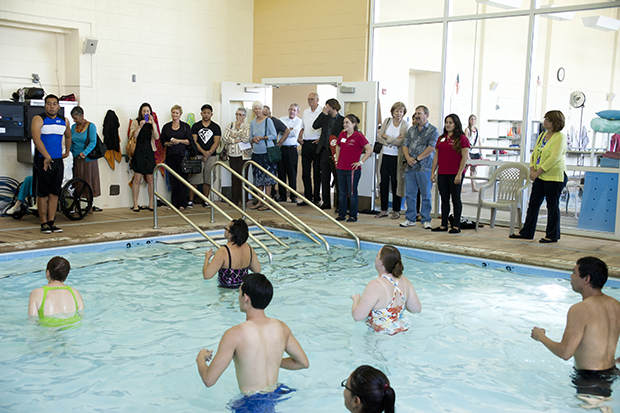

Community members and faculty tour the Brown Center at the 10th Anniversary Celebration on Nov. 2. In the photo, one of the many community and campus groups that use the pool. Photo by Nestor Garcia.
When the Abbott and Linda Brown Western Center for Adaptive Aquatic Therapy opened 10 years ago, California State University, Northridge officials knew that the center would positively impact people with disabilities, but not to what extent.
However, on Saturday, Nov. 2, the center’s impact was clear, as about 200 members of the community, including donors, clients, employees and supporters, attended a 10th anniversary celebration of the program. Guests toured the facilities and heard from speakers, including Taeyou Jung, director of the Center of Achievement Through Adapted Physical Activity and Brown Center and client and benefactor Al Lapides, M.S. ’68 (Business).
“It was a project that I had envisioned in terms of making a significant contribution, but I’ve heard people say it saved their lives,” said kinesiology professor emeritus Sam Britten, who founded the center and served as its first director. “I’m so proud that is it really helping people.”
The Brown Center opened in 2003 as an extension of the land-based Center of Achievement Through Adapted Physical Activity, which has been providing internationally recognized adapted fitness programs for persons with disabilities since 1971. In addition to providing therapeutic exercise programs for individuals with physical challenges, the Center of Achievement also trains students as professionals in health and rehabilitation-related fields.
The addition of the Brown Center provided water-based exercise programs that give even those with serious or chronic physical challenges, including children, freedom of movement with little or no pain. This is primarily due to the buoyancy of water, which provides an ideal environment for the body to function with reduced gravitational stress.
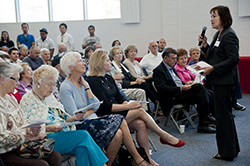
Sylvia A. Alva, dean of the College of Health and Human Development, speaks to those in attendance at the Brown Center anniversary event. Photo by Nestor Garcia.
“The Center of Achievement offers innovative educational opportunities to students and expanded services to people of all ages with physical challenges,” said Sylvia A. Alva, dean of the College of Health and Human Development. “It’s a great asset to both our campus and surrounding community.”
The 18,400-square-foot Brown Center consists of a main 60-foot-by-24-foot heated therapy pool with two underwater treadmills; a 30-foot by-24-foot heated pool with a vertically adjustable floor; a 17-foot-by-10-foot spa aimed at helping those with joint and soft tissue issues; and a 26-foot-by-24-foot activity pool.
CSUN’s Center of Achievement serves about 450 community and student clients each semester, about 295 of whom are served by the Brown Center.
CSUN, Southwestern Team Up for B.A./J.D. Program
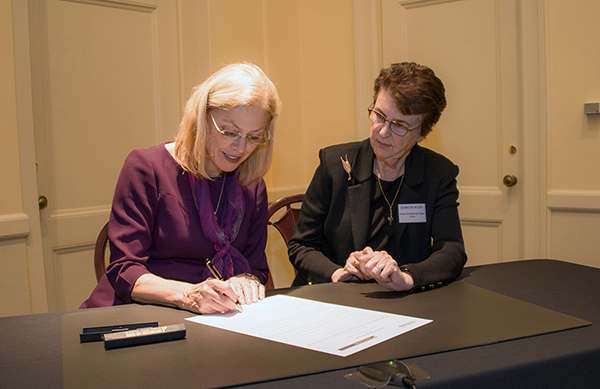

CSUN President Dianne F. Harrison sits with the Dean and Chief Executive Officer of Southwestern Law School Susan Westerberg Prager to sign the partnership agreement between the two schools.
Amidst the Art Decco splendor of Los Angeles’ historic Bullocks Wilshire building, now home to Southwestern Law School, California State University, Northridge faculty and staff members on Nov. 18 celebrated CSUN’s new partnership with the law school that will put interested Northridge students on a fast track to a law degree.
Beginning in the fall of 2014, CSUN students will be able to enroll in an accelerated multiple-degree program through which students can earn both their Bachelor of Arts and Juris Doctor degrees in six years, rather than the usual seven.
Students participating in the 3+3 B.A./J.D. Program will have their first year of law school count as the fourth year of their undergraduate education. Students admitted to Southwestern through the program will receive the $10,000 Wildman/Schumacher entering-student scholarships, which may be renewable in subsequent years depending on academic performance. CSUN started recruiting students for the program this year. The initial enrollment is expected to be up to 35 students drawn from any department on the Northridge campus.
“I am pleased CSUN is partnering with Southwestern to give students who are committed to pursuing a career in law an opportunity to get a head start on achieving their goal,” said CSUN President Dianne F. Harrison, who spoke at the event along with Harry Hellenbrand, CSUN’s provost and vice president for academic affairs, and Stella Theodoulou, CSUN’s dean of the College of Social and Behavioral Sciences. “It is another example of CSUN’s commitment to find innovative ways to help students advance, and I am grateful to the staff at both institutions who made this program a reality.”
“CSUN and Southwestern are two incredible institutions that are known for their diversity in both their curriculum and their student body,” said Stephanie Peatman ’07 (Family and Consumer Science), managing editor of the Southwestern Journal of International Law. “This joint program will provide students with an innovative opportunity to pursue their dreams and achieve their goals quickly without losing any quality or substance of a typical undergraduate or legal degree.”
Southwestern Dean Austen Parrish said the program provides his institution “with another important avenue for encouraging promising undergraduate students from a wide range of backgrounds to pursue a legal education at Southwestern.”
“This is a natural partnership for our two schools, both having long-held extensive connections to Southern California,” Parrish said. “It is notable that there are more CSUN graduates serving in the Los Angeles-area judiciary than from any other undergraduate institution — a heritage that is similar to Southwestern’s. CSUN also sponsors an extensive judicial internship program for students with the L.A. County Superior Courts, as does Southwestern.”
Theodoulou, who was instrumental in creating the program, called the partnership a “truly a wonderful path for our students who know early on that they wish to pursue graduate education in law.”
“A CSUN-Southwestern program is a significant extension of both institutions’ commitment to providing our students with a relevant educational experience so that they are competitive members of the region’s workforce and future leaders of California,” she said.
Pan African Studies Celebrates Anniversary
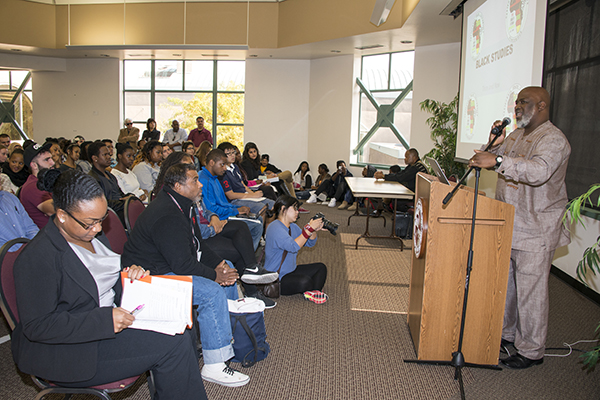

Akinyele Umoja, keynote speaker at the Department of Pan African Studies’ 44th Anniversary event, discusses the history of the founding of black studies as a discipline and the civil rights movement. Photo by Lee Choo.
In celebration of the Department of Pan African Studies’ 44th anniversary, scholar-activist Akinyele Umoja outlined the history of the student movements that launched the creation of the black studies program at California State University, Northridge and those throughout the country.
Umoja, chair of African-American Studies at Georgia State University and author of “We Will Shoot Black: Armed Resistance in the Mississippi Freedom Movement,” grew up in Compton. Umoja said he gained his early understanding of the importance of black studies and education from the founders of CSUN’s Department of Pan African Studies. CSUN became one of the first universities in the nation with a black studies program when the department opened its doors in 1969.
“There were students organizing everywhere, but the students at Valley State — now California State University, Northridge — were more serious and more organized,” Umoja recalled. “They saw the necessity for strategic alliance. That’s what you need today.”
Umoja was the keynote speaker at the department’s celebration, “From Then to Now,” on Nov. 4. He was joined by CSUN Black Student Union founder Adewole Umoja, formerly known as Archie Chatman ’68 (History), a political science professor at Los Angeles Southwest College and one of the more than 20 students who on Nov. 4, 1968, took over the administration building of what was then San Fernando Valley State College to protest the institution’s treatment of minority students.
Also speaking at the celebration were Harry Hellenbrand, CSUN’s provost and vice president for academic affairs; Johnie Scott, the department’s chair; and PAS professors Raquel Kennon and David Horne.
“The struggle on this campus in 1968 was against neo-Colonialism … for self-definition, self-determination,” said Adewole Umoja. He said the struggle is not over.
“We have not achieved our goals. We are still struggling and the forces of opposition are still there. The struggle is about the ability for us to make decisions for ourselves and see them through,” Umoja said.
The department’s celebration kicked off on Friday, Nov. 1, with a screening of “The Storm at Valley State,” an hour-long documentary about student activism at CSUN in the 1960s and 70s, and a faculty-student dialogue in the University Student Union’s Northridge Center.
The CSUN Black Alumni Association and the department co-hosted an evening book signing, reception and question-and-answer session for Akinyele Umoja
Alumni Chapter Provides 14th Year of Mentoring to Students
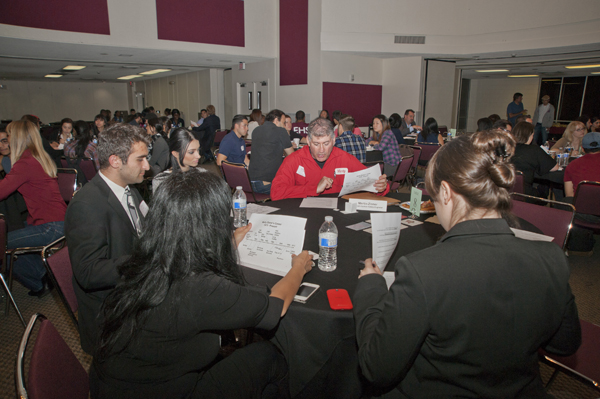

More than 150 students attended the 2013 EOH Speed Mentoring event, meeting with a few of the 25 alumni mentors who offered the insider know-hows on finding and earning jobs in the field. The event allowed students to sit in groups to ask questions of the mentor at the table and provided them the opportunity to learn about future careers in EOH. Photo by Lee Choo.
Life-changing opportunities were granted to California State University, Northridge students by the Environmental and Occupational Health (EOH) Alumni Chapter at the 14th annual Speed Mentoring Event when they were linked with professionals in fields related to the degree.
Much like walking into a room for speed dating, students gathered at tables with a mentor for a 10-minute round, chatted about the potential work force in EOH, were interviewed by the mentor and were even offered a few applications by alumni with internship and job positions open in their companies.
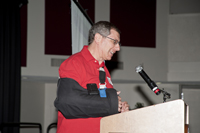
Bob Finkelstein ’78 kicked off the 2013 EOH Speed Mentoring event with words of wisdom for the participants. Photo by Lee Choo.
“There’s so much enthusiasm in the students here,” said Bob Finkelstein M.S. ’78 (Environmental and Occupational Health), the EOH Alumni Chapter president and one of the key coordinators of the event. “It’s so great to see them walk out tonight with new knowledge — learning how to get a better job and what’s available to them — and newly established networks that can lead to so many opportunities in the fields of EOH.”
The Speed Mentoring Event took place on Nov. 14 in the University Student Union’s Northridge Room. More than 150 students attended the event, and about 25 alumni returned as mentors. The department has graduated students who have gone on to be top-level executives, investigators and consultants at such organizations as Kaiser Permanente, Los Angeles World Airports, CalOSHA and the Department of Public Health. While some, like Finkelstein, have acted as mentors for years, others were first-timers who simply wanted to give back, having “been there” not too long ago.
“This is a good use of a Thursday,” said Nick Loebs ’04 (Industrial Hygiene), M.S. ’06 (Environmental and Occupational Health), who is now employed as an environmental health safety manager for AMGEN. “It’s a special thing to have a mentor. If I were in [the students'] shoes, I would use this because it lets students know there are jobs out there.”
As a mentor, Loebs’ key advice was to get experience and “go on as many interviews as you can.” He wanted students to take away a sense of preparedness as they begin to enter the working world of EOH.
The evening was coordinated by the alumni chapter in conjunction with the Environmental and Occupational Health Student Association.
According to Finkelstein, the event has grown a lot since his early days as a mentor, when there were as few as seven mentors and 20 students. For Thomas Hatfield, EOH department chair, it has grown beyond the wildest dreams of those coordinating similar events at the state and national levels.
“I’ve gone to these at these at the national level, and ours is larger,” Hatfield told the gathered students awaiting their chance to meet their mentors. “We’re bigger than those hosted at the state level, too. I don’t know of a better Speed Mentoring Event in the area of EOH.”
So, why CSUN?
“CSUN is home to the largest EOH program in the nation,” Hatfield said. “Being in Los Angeles, there are a lot of great opportunities as can be seen in the number of our alumni who continue to persevere in their lines of work in the area.”
As the night proceeded, students and mentors went through several rotations to meet new people, explore new fields and potential job candidates. Finkelstein noted that the ending reception was new to this year’s program, providing the participants a more relaxed setting in which they could talk. He said he expected it to be a great platform for extended mentoring.
After the event, students were encouraged to keep in touch with those mentors from which they wish to learn more. Having been provided a list of their emails and positions along with a handful of brochures from EOH-related companies, job prospects were abound.
“I came to the event wanting to broaden my knowledge about the field,” said Rowena Montilla, a second bachelor’s candidate who recently began her EOH program. “I figured meeting new people would give me better job opportunities in the future if I got to know them now.”
On top of all of the bonding and talking, the alumni had one last gift to bestow upon the students.
“Each year, the EOH Alumni Chapter donates money in honor of our past president Ralph Jones to help you, the students, go through a great program,” Finkelstein told the room. “This year, we are proud to present Dr. Hatfield with $2,500 to be used for student benefit.”
Fienstein said he was happy with the way the evening turned out.
“This is really a chance for mentors to reconnect and for students to see what’s really going on in the working world,” he said.
CSUN Receives Inaugural Champion of Access Award from IHEP

California State University, Northridge was one of a handful of campuses nationwide today to receive recognition at the Institute for Higher Education Policy’s inaugural Champions of Access and Success Awards.
CSUN was recognized as an “Exemplar Institution” by the Institute for Higher Education Policy (IHEP), which for 20 years has promoted access to and success in higher education for all students, for successfully advancing strategies that increase opportunity, persistence and degree completion for low-income, first-generation, minority, adult, veteran, disabled and other underserved students.
IHEP officials said they were honoring CSUN as an exemplar institution because of its strong programmatic efforts and promising practices that are driving access and success gains for targeted underserved student populations. The other winning “Exemplar Institutions” were Fayetteville State University in North Carolina and Florida State University in Tallahassee, Fla.
“President Dianne Harrison and I are really moved by this recognition,” said CSUN Provost Harry Hellenbrand. “Our faculty, staff, students and community partners have worked tirelessly to make CSUN an even more inclusive university, in a time when state budgets are shrinking and families are pressed hard for resources.”
Cal State Northridge has a long history of providing opportunities to underserved student populations, including students with disabilities, from low-income families and who are first in their families to go to college. Designated a Hispanic Serving Institution by the federal government, CSUN also has a tradition of providing academic opportunities to all students. For example, a contingent of CSUN students recently attended the Hispanic Association of Colleges and Universities’ annual conference in Chicago.
The IHEP Champions of Access and Success Awards were presented today during the organization’s National Policy Summit: Redefining Access for the 21st Century Student held at the National Press Club in Washington, D.C. The signature IHEP event brings together critical stakeholders — policymakers, institutional decision-makers, business leaders and other influential individuals whose reach extends across and beyond the postsecondary community — to foster policy and practice solutions in support of increased success and access.
“Since our founding in 1993, IHEP continues to embrace a vision where all people have the opportunity to reach their full potential by participation and succeeding in higher education,” said IHEP President Michelle Asha Cooper. “The IHEP Champions of Access and Success Awards not only affirm our longstanding commitment to championing increased college access and success for underserved students across the nation, they also recognize the efforts of California State University, Northridge for working to advance this important mission.”
The IHEP Champions of Access and Success Awards were selected through an open application and nomination process; for the institutional awards, all institutions committed to improving access and success were invited to apply. Selections were vetted by IHEP staff, board members and external postsecondary access and success experts.
The Institute for Higher Education Policy (IHEP) is a nonpartisan, nonprofit organization committed to promoting access and success in higher education for all students. Based in Washington, D.C., IHEP develops innovative policy- and practice-oriented research to guide policymakers and education leaders, who develop high-impact policies that will address the nation’s most pressing education challenges.
California State University, Northridge is a regionally focused, nationally recognized university enrolling approximately 36,000 students a year. Founded in 1958, Cal State Northridge is among the largest universities in the nation and is ranked among the top universities for bachelor’s degrees awarded to minority students. It has nine colleges and more than 2,000 faculty members who teach courses leading to bachelor’s degrees in 63 disciplines, master’s degrees in 57 fields and doctorates in education and physical therapy, as well as 28 teaching credential programs. Continuously evolving and changing to meet the needs of California and the nation at large, the university is home to dozens of acclaimed programs where students gain valuable hands-on experience working alongside faculty and industry professionals, whether in the sciences, health care and engineering or education, political science, the arts and the social sciences.
Chinese Ambassador Jian Liu to Visit CSUN to Mark Donation to Library
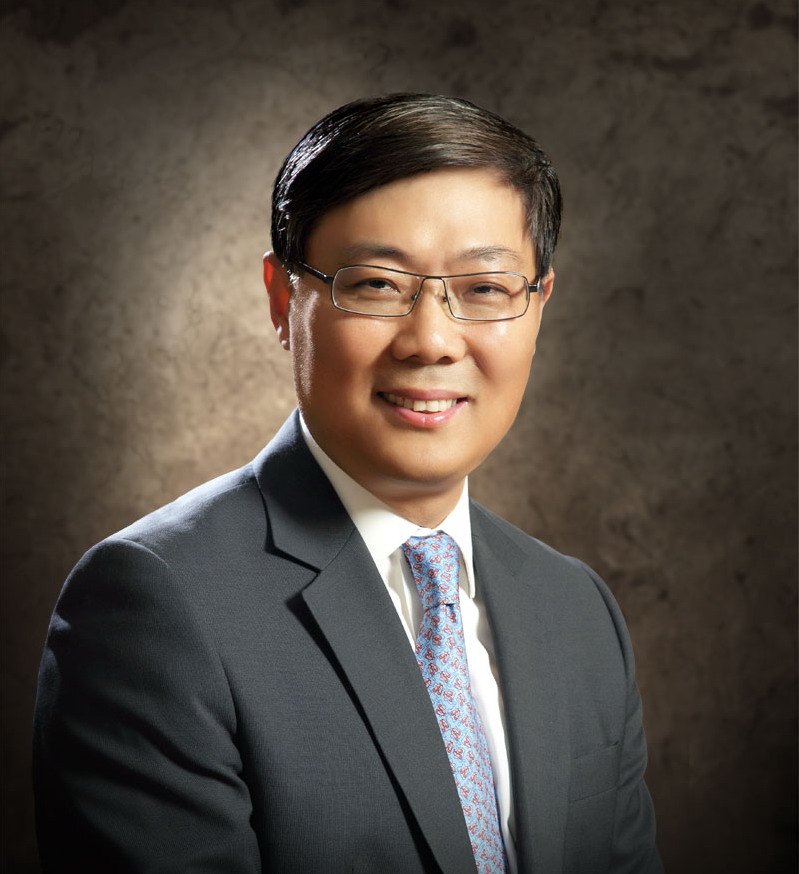
Ambassador Jian Liu, China’s consul-general for Los Angeles, is bringing a delegation to California State University, Northridge, on Wednesday, Dec. 11, to mark the donation of more than 2,000 books to the university’s library to expand student and faculty understanding of China.
Liu and China’s Consuls for Educational Affairs Wieheng Chen and Liqun Li will join CSUN President Dianne F. Harrison for a special ceremony at noon in the Jack and Florence Ferman Presentation Room of CSUN’s Delmar T. Oviatt Library, located at 18111 Nordhoff St. in Northridge.
“CSUN has a very long history of relationships with China,” said Harrison,
who visited China in September to meet with sister campus officials and members of CSUN’s China-based alumni networks. “We treasure those bonds, and we appreciate the generosity of the Chinese government in this valuable educational gift, which we will also share with our local schools that teach Chinese language and culture.”
Liu has spent more than 30 years as a career diplomat, serving in strategic appointments around the world, including as China’s ambassador in Pakistan, Malaysia and Afghanistan. He was appointed China’s consul-general for Los Angeles earlier this year.
Cal State Northridge has a long history of collaboration with China. CSUN was one of the first American universities to pursue educational and cultural exchanges with Chinese universities when the late-President James Cleary signed CSUN’s first foreign student exchange agreement in 1981. A year later, CSUN established its China Institute to promote a better understanding of the Chinese culture and to strengthen friendship between the American and Chinese people.
Today, CSUN has MOUs and letters of intent with about 50 universities in China. These agreements have helped to promote the academic and cultural exchange of faculty and students through joint teaching, research, creative projects, visiting professor opportunities and other projects. Hundreds of students from China have studied at CSUN, and faculty have participated in exchange programs.
Several years ago, the Chinese consulate donated more than 1,000 Chinese language and culture books to the Oviatt Library as a resource for CSUN students and members of the community to learn more about China and its people.
Mark Stover, dean of the Oviatt Library, said the most recent donation of books covers a wide range of topics, from language acquisition to the history and culture of China.
“The donation means a lot to us because we realize and recognize that China is opening up more and more, and many of our students are from mainland China,” Stover said. “It’s also important for a graduate of CSUN to understand Chinese culture, history and language. Plus, the Oviatt Library is a valuable resource, not just for the San Fernando Valley, but all of Southern California, and this is a great opportunity for residents of the region to have access to information about China.”
EOP Celebrates Mentoring at CSUN
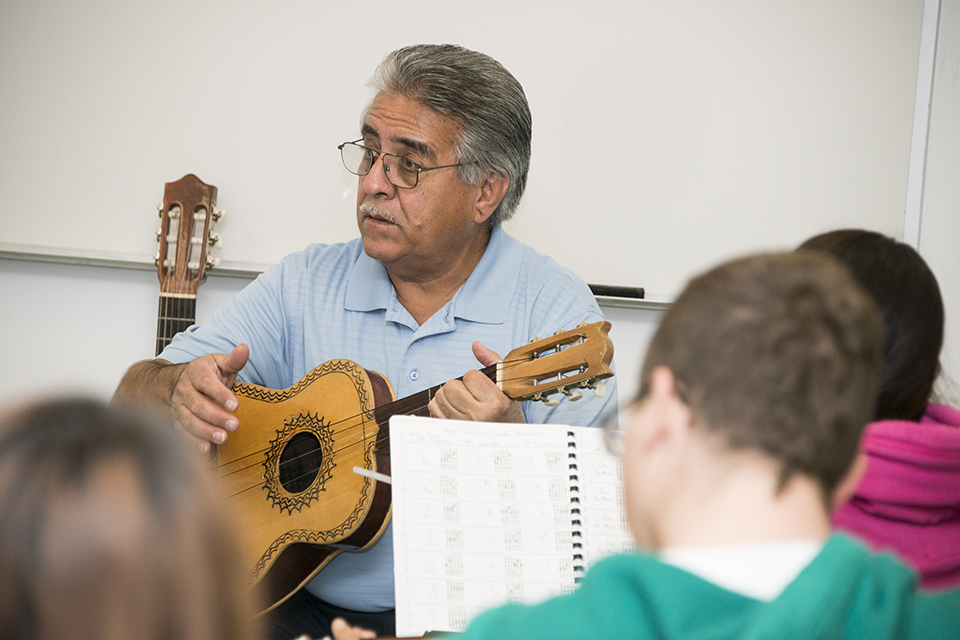
Four California State University, Northridge employees were honored for being great mentors at the 2013 Don Dorsey Excellence in Mentoring Awards.
The awardees are psychology professor Gabriela Chavira ’94 (Psychology/Chicana/o Studies); biology professor Cindy Malone; Parthenia Hosch, administrative analyst in the Department of Biology; and Chicana/o Studies professor Everto “Veto” Ruiz ’71 (Sociology). The four were recognized at a campus reception on Nov. 20 for providing a range of support to students, from offering a safe haven for students in need of comfort to inspiring students disheartened by a bad grade to providing a friendly research lab.
“Our award recipients, and all who were nominated, are dedicated staff and faculty who creatively infuse mentoring into their teaching, research work and daily interactions with students,” said Glenn Omatsu, coordinator of CSUN’s Faculty Mentor Program. “They also embody the values of equity and social justice on our campus which are connect to the mission of mentoring students in state universities.”
The annual awards are presented by the Educational Opportunity Program’s Faculty Mentor Program. It recognizes faculty and staff who have made exceptional contributions to mentoring of past and present students; who take a holistic approach to mentoring, including academic and personal support; and who support the university’s commitment to the success of students of diverse backgrounds and communities.
Chavira is an alumna who has taught at CSUN for nine years. One of her current research projects, Pathways to College, examines how families, schools and students contribute to academic achievement of Latino and other middle school students. She has mentored numerous students through her research lab and her association with National Institutes of Mental Health’s Career Opportunities in Research, NCMHD Research Infrastructure in Minority Institutions, CSU Sally Casanova Predoctoral Scholars, the McNair Scholars programs and the Department of Psychology’s Teaching Intern Program.
“If it weren’t for my mentors, I wouldn’t be here,” said Chavira, who has a doctorate from the University of California, Santa Cruz. “Many times first-generation students don’t realize the important of their grades and other things. I don’t mind helping them if I see the passion and the commitment.”
Malone has taught at CSUN since 2005. She mentors students through her research lab and her grant project, the CSUN-UCLA Bridges to Stem Cell Research. She also mentors students — both biology majors and non-biology majors — through her creative and engaging approaches to teaching, which include singing songs with biology lyrics and dressing up as a clown and juggling for students that do well on exams.
“I have spent my entire life helping students who struggled academically,” said Malone, who always did well in school. “I goof around and try to be as open and unpretentious, so students feel welcomed.”
Hosch has worked at CSUN for 29 years. She has played a key role in two programs: Minority Access to Research Careers (MARC U-STAR) and Minority Biomedical Research Support (MBRS). These programs focus on first-generation college students and students from underrepresented communities to help them become involved in biomedical research and to pursue careers in these fields.
“Mentoring: I have accepted it as my moral responsibility,” Hosch said. “I listen and I show concern, and sometimes I have to advocate for the students. Sometimes all the student needs is for me to listen and not judge them.”
As a student in the 1960s, Ruiz formed the United Mexican American Students chapter with about 15 to 20 students. The group later became MEChA (Moviemento Estudiantil Chicana/o de Aztlan). He has been fighting for students, particularly students of color, since during his more than four decades at CSUN.
“I know what it’s like to be overwhelmed by an institution and not feel like you belong,” said Ruiz, who helped form EOP and establish the Departments of Pan African Studies and Chicana/o Studies. “The students I have tried to help over the years have faced many challenges, having to leave their home and sometimes take multiple buses to get here.
“I wanted them to know they had family and a nurturing atmosphere to give them strength,” Ruiz said.
A talented Mariachi performer and teacher, he is a pioneer in using music and performance to raise consciousness. Now retired, Ruiz continues to mentor students through EOP’s bridge program in his popular “Chicanos and the Arts” class.
For more information about mentoring, visit the EOP website.
Pan African Studies Class Addresses Black Male Issues
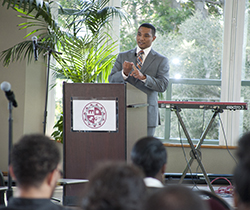
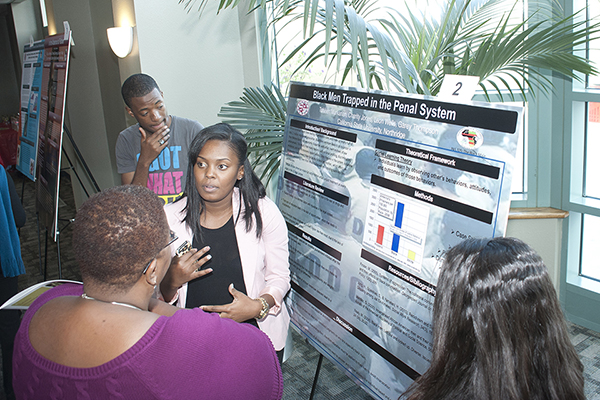
Charity Jones discusses her poster, “Black Men Trapped in the Penal System,” to attendees at the Bi-Annual Men of Color Enquiry & Student Research Poster Session. Jones’ poster was one of 11 student posters showcased at the event.
California State University, Northridge students examined issues ranging from black men in the music industry and black men trapped in the penal system to black on black violence at the Bi-Annual Men of Color Enquiry and Student Research Poster Session.
The event, sponsored by the Department of Pan African Studies, the W.E.B. DuBois-Fannie Lou Hamer Institute for Academic Achievement and other campus partners, was held on Nov. 26 in the University Student Union’s Grand Salon. It showcased 11 student posters from the Pan African Studies course, “The Black Man in Contemporary Times,” and featured guest speaker Dyrell Foster, dean of students at Rio Hondo College and an expert on the engagement of African-American male students.
“We felt these were the most prevalent issues that impact black males,” said Glenna Dixon, a junior majoring in journalism and Pan African Studies, who along with two other students presented a poster titled, “Black Male Identity: The Effects of Education, Media and Policy.” She said the university and community need to challenge the stereotypical media portrayals of black men.
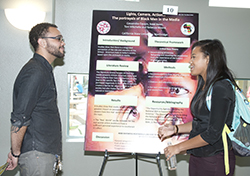
Rebecca Moore explains her poster, “Lights, Camera, Action: Portrayals of the Black Men in Media,” to classmate Quinton Johnson.
Quinton Johnson, a communications studies major, and Aubrey’nay Johnson, a health administration major, presented their poster, “Black on Black Violence.” They questioned why black-on-black violence is so high. According to a 2005 Bureau of Justice Statistics report, more than 90 percent of black murder victims are killed by other black people.
“A lot of the crime is subject to domestic violence issues,” said Johnson. “We’re frustrated with each other because of pressures and issues in society.”
His poster partner agreed. “It’s a cycle,” Aubrey’nay Johnson said. “We have to break it.”
Cedric Hackett, the professor of the class and assistant chair of the Pan African studies department, said he organized the event to expose students to a technique used in black studies called “kufundisha,” which allows the professor to observe collective categories of learners while they explore social experiences that are “racially inspiring and liberating.”
He said the course also offers students an opportunity to present “nonscientific” research in a experience that is not normally available at the undergraduate level.

Dyrell Foster, dean of student affairs at Rio Honda College, led a a discussion on “Understanding the Student Engagement Experiences of African-American Males.”
Foster applauded CSUN’s Department of Pan African Studies in its effort to bring awareness to the complex issues that African-American males experience in the community and on a college campus.
“Courses like this provide an opportunity to discuss these issues and find ways to make a college campus a more welcoming environment for African-American students,” Foster said. “We need to surround our students with positive mentors and role models.”
